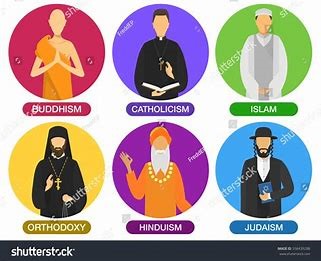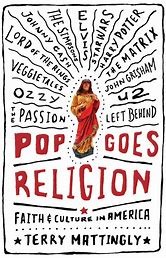Religion, as an area of study, has always been a part of society due to its impact on the formation of culture, moral standards, and perception of reality. In the domains of culture and entertainment, it has been deeply and sometimes shockingly portrayed, often offering society reflections of its sentiments.
While movies and television are some of the most influential aspects of popular culture, literature and music have also served to portray religion in various ways and provoke discourse on faith and the human condition.
Among the most significant ways religion is present in pop culture, one of the best-known is through thematic aspects. Religious elements often serve as the basis for plots or as symbols and ethical themes within stories. For example, movies like “The Ten Commandments” and “The Passion of the Christ” delve into the core of Christian doctrine, depicting pivotal events that are foundational to the faith in a dramatic manner. Rather than simply entertaining, these interpretations provoke thought and encourage deep reflection.
In addition to themes, religious characters, both real and imaginary, are often depicted in pop culture. Whether it’s the portrayal of Jesus Christ in movies or the exploration of various gods and goddesses in fantasy, these representations often reflect societal aspirations. At their best, they can make holy figures more approachable; at worst, they can provoke critical assessment.
Of course, there are certain issues with the interaction between religion and popular culture. Depictions involving faith, gods, or goddesses can sometimes provoke anger among religious groups or stir controversies. For instance, movies like “The Da Vinci Code” sparked discussions because they portrayed a supposed Holy Grail associated with Christianity, which was entirely fictional.

Furthermore, the presentation of multicultural beliefs and faiths can be a sensitive subject. There are frequent complaints about the portrayal of certain religious groups being excluded or misrepresented. Currently, there is a growing consensus for more realistic portrayals of religions that honor the diversity of religious systems worldwide.
Nonetheless, the impact of religion on popular culture today is undeniable. These aspects are significant because media and entertainment influence perceptions and discussions about faith and spirituality. They can help individuals gain knowledge about their own beliefs or promote tolerance between different religions. For example, the TV show “The Good Place” addresses philosophical issues of morality in a way that appeals universally, including to individuals with religious beliefs.
In the future, as society continues to secularize and technology advances, it is safe to assume that the portrayal of religion in popular culture will evolve. New narrative approaches in media and increased global access may lead to greater respect for diverse religious beliefs. With society becoming more globalized, media creators have an opportunity to share common experiences and provide platforms for discussion through the stories they tell.

Lastly, it is important to mention that religion, as a concept heavily represented in the media and entertainment industry, is complex and has a significant impact on people’s views and attitudes. Whether biblical or drawn from various legends, pop culture provides a means to understand faith and spirituality even today. In a sense, as viewers and creators, being able to critically interpret and approach such representations can contribute to the growth of our collective and diverse self-knowledge.
Sources
- https://search.app/?link=https%3A%2F%2Flookinginthepopularculturemirror%2Ewordpress%2Ecom%2F2017%2F03%2F14%2Fchristianity%2Din%2Dpopular%2Dculture%2Dmedia%2F&utm_source=igadl%2Cigatpdl%2Csh%2Fx%2Fgs%2Fm2%2F5
- https://search.app/raorBrZEYBoMrv3D6
- https://search.app/?link=https%3A%2F%2Fwww%2Eresearchgate%2Enet%2Fublication%2F228504816%5FPopular%5Fculture%5Ffandoms%5Fthe%5Fboundaries%5Fof%5Freligious%5Fstudies%5Fand%5Fthe%5Fproject%5Fof%5Fthe%5Fself&utm_source=igadl%2Cigatpdl%2Csh%2Fx%2Fgs%2Fm2%2F5




